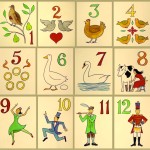
The house is still as the sun peeks slowly over the eastern horizon. The pungent aroma of onion cooking for quiche mixes discordantly with the sweet smell of gingerbread in the oven. Packages sit under the Christmas tree – for a few more moments, at least. And I sip coffee and read from the prophets Isaiah and Micah, and from John (“the disciple whom Jesus loved,” as he was wont to describe himself, unnamed).
Yesterday I pondered the responses of Zechariah, Mary, and Joseph to their respective visits from Gabriel, the Messenger of God. Disbelief. Bewildered trust. Obedience (though undoubtedly mixed with practical questions about honor, integrity, and righteousness).
Today’s readings are filled with prophetic hope for a derided nation, honor for a forgotten village, longing for salvation and rescue from enemies. Promises of a Savior, Rescuer, Judge; of justice and the restoration of an ancient, royal city.
The baby whose birth we celebrate today may not have been exactly what people had in mind when they read the stories in the antiquated scrolls. As he grew up, as he began his work, as the work seemed to end on a brutal Roman cross… the disappointment and disillusionment only grew.
Today—Christmas Day, 2017—the likelihood of disappointment and disillusionment is just as real. The peace we heard about in yesterday’s Christmas Eve sermon is elusive not only in the nation but even in our families. The justice promised with the coming of the Messiah seems as distant now as Micah’s writings from two-and-a-half millennia ago. No wonder the gifts that ring our trees have taken center stage: they’re here, real, tangible…even if they, too, often carry a degree of disappointment.
The work for justice, righteousness, and peace that began in a stable in Bethlehem (and long before then)…; the work that reached a climax on a cross on Calvary…; the work that a ragtag band of men and women were left to carry on…; that is our work, our task, our mission.
The wise men brought the newborn King gifts of gold, frankincense, and myrrh. It’s said that the gold symbolized his royal lineage, frankincense represented the worship due him, and myrrh foretold his sacrificial death. Perhaps this year, we can offer gifts to Jesus, as well. Perhaps we can offer a tireless striving for justice in our communities, nation, and world; perhaps we can live lives of righteousness – not legalism, but right living on behalf of others; perhaps we can work to bring peace into our families, workplaces, schools, communities.
What gifts will you offer this Christmas?


